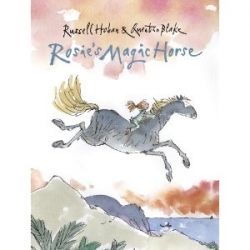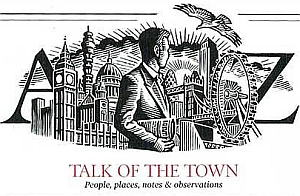The Cheshire Cheese, Crutched Friars
(The Medusa Frequency)
I think Crutched Friars has to be one of the best street names I’ve heard, even in London. My blurry head mixed the word crutched with crouched and I imagined the street centuries ago populated by little tonsured, stooped old men in heavy cassocks hobbling around on their way to the London Foot Clinic. The pub was directly under the railway bridge taking trains to and from Fenchurch Street Station and there was just the one streetlamp in the vicinity, so the whole thing felt juicily Dickensian, and, by extension, Hobanesque. There was a sign on the wall under the bridge saying:
IN CASE OF EMERGENCY
If you witness a vehicle striking this railway bridge, please contact Railtrack using telephone number 01708 641225. State “Bridge strike at Savage Gardens” and quote bridge number FSS1495. Immediately afterwards inform police using 999 system.
The full Medusa description of the Cheshire Cheese refers to a décor of red and black, so I was expecting the pub to be dark and dimly lit with small knots of old men mumbling in corners smoking Golden Virginia and playing bridge. Whether Russell Hoban embellished the interior to give it more atmosphere for the novel or whether it had had a refit since the mid-eighties I couldn’t be sure, but the words red, black and dark were not the ones that immediately sprang to mind as I walked in. It was certainly welcoming, but kind of yellow and green, quite bright and a little on the hard side, with one of those polished wood floors that people’s voices and juke-box tunes bounce off rather than be absorbed by in the style of the old-fashioned pubs. There were tables and chairs dotted about and at the far end of the bar an enormous TV screen was suspended. It wasn’t very busy, but almost everyone in the pub seemed to be a City type in a pin-stripe suit, and for a moment I had the awful feeling that this was an old pub that had been yuppified in the same manner lamented by the John Smith character from the Zetland Arms scene from Amaryllis. Given the suitage in the place I jumped to a conclusion and thought the screen was showing Bloomberg statistics and financial news, but on a second look it was just a sports programme, and not everybody in the pub in fact was wearing a suit. Long overdue for a drink, I was called to the bar where I stood for a couple of minutes while the single barman, a Kiwi in his early twenties with spiky hair and an animal tooth on a cord around his neck, served a group of City types who seemed to have taken up residence at the other end. I’m eternally useless at getting the attention of waiters and bar staff, and, in quintessential English fashion, I tend to just wait patiently for hours repressing my rage until I finally implode. Here however one of the City guys actually made the unheard-of sacrifice of pointing the barman in my direction, a gesture for which I was very grateful and which raised my opinion of both clientele and establishment immediately. I ordered a glass of Australian red wine and a packet of cheese and onion crisps (any other flavour seemed wrong somehow) and retired to a table. From here I soaked up the gentle atmosphere and surreptitiously inserted the previous quote about the approach to the pub from Savage Gardens into a menu of some nice-sounding pub food, and secreted this quote underneath an empty pint glass:
Next stop






 On 4 February 2012 the Slickman A4 Quotation Event celebrated
On 4 February 2012 the Slickman A4 Quotation Event celebrated 


 In 2005 the first international convention for Russell Hoban fans took place in London, and was marked by the publication of a fantastic 48-page booklet featuring exclusive contributions from innumerable fans and associates including novelist David Mitchell and actress Glenda Jackson. A wonderful memento of the event, it's also a beautiful collector's item and must-have for any Hoban fan. Although in limited supply, copies of the booklet are still available at £6.00 each plus p&p. Order direct from
In 2005 the first international convention for Russell Hoban fans took place in London, and was marked by the publication of a fantastic 48-page booklet featuring exclusive contributions from innumerable fans and associates including novelist David Mitchell and actress Glenda Jackson. A wonderful memento of the event, it's also a beautiful collector's item and must-have for any Hoban fan. Although in limited supply, copies of the booklet are still available at £6.00 each plus p&p. Order direct from  Russell Hoban turned 86 on 4 February 2011 and fans celebrated in traditional style by leaving quotes from his books in public places. Browse their quotes
Russell Hoban turned 86 on 4 February 2011 and fans celebrated in traditional style by leaving quotes from his books in public places. Browse their quotes  To celebrate 30 years in print of Russell Hoban's most famous novel
To celebrate 30 years in print of Russell Hoban's most famous novel 






No comments:
Post a Comment
Note: only a member of this blog may post a comment.